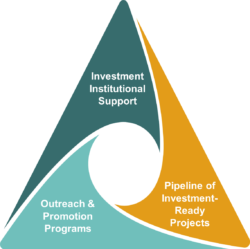Jordan Economic Reform Activity Task Order 1
The United States Agency for International Development (USAID)/Jordan Economic Form Activity (ERA) Task Order 1 supports the Government of Jordan (GoJ) to prioritize, implement, and sustain economic form, contributing to one of USAID/Jordan’s development goals: generate inclusive private sector-led growth. The activity focuses on four primary objectives: (i) advancing economic reform; (ii) strengthening the business enabling environment; (iii) increasing exports and local, regional, and international investment; and (iv) responding to emerging priorities that impact the Jordanian economy. To achieve these objectives, ERA provides technical assistance to the GoJ to analyze, consult on, draft, revise, finalize, and implement economic reform, expanding exports and investment through the Jordanian diaspora and proposing sectors for investment promotion, especially with the potential to impact women and youth. Banyan Global works closely with its government counterparts to strengthen their capacity in investment promotion. Banyan Global supports co-development of investment strategies, co-design of investment promotion communications plans, and the development of key investment briefs, among other initiatives.

Banyan Global supports ERA’s investment promotion and facilitation initiatives with the GoJ, including the Ministry of Investment (MoIN). This work involved providing assistance to: (i) strengthen institutional systems and processes that promote investment; (ii) professionalize investment outreach and promotion; and (iii) prepare its pipeline of investment-ready projects for foreign direct investment (FDI). Specifically, Banyan Global is supporting the MoIN to implement its Strategic Plan; developing an Engagement Plan; and leveraging pubic and private resources to advance investment-ready projects towards completion.
